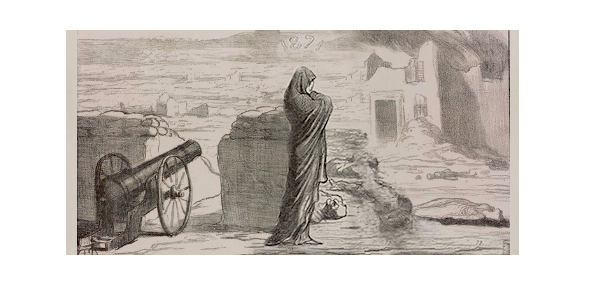
Funded by the European Commission [Horizon 2020, Marie Skłodowska-Curie Actions], “The Family at War in French Culture (1870-1914)” project investigates how the familial experience of the Franco-German War of 1870-71 was represented in the cultural production of the first four and a half decades of the Third Republic.
Fought almost exclusively on French soil, the war was a traumatic experience for France, not just politically (with the fall of Napoleon III’s Second Empire; the birth of the Third Republic in September 1870, which would last until the Second World War; and the civil war of the Paris Commune in 1871), but also socially (in the two sieges of Paris, and in the battlefield experience and its effects on the provincial population).

Wars, we know from the twentieth-century experience of two world wars, involve on all sides the mass separation, damage and reconfiguration of families; and in particular, the shifting of gender relations in and beyond the family. It is precisely the intensity of the twentieth-century European experience of war which has turned 1870-71 into what has been called “the forgotten war”. Yet 1870-71 represents a key foundational moment in the invention of modern Europe – when France finally embraced republicanism for good, and Germany was born as a nation-state.
How in particular, we shall ask, was the family’s experience of this war remembered in literature, journalism and iconography? It is the aim of the current project to correct that oversight.
Marion Glaumaud-Carbonnier & Nicholas White
The project has produced the following range of outputs:
5. Society of Dix-Neuviémistes, University of St Andrews [22th-24th March 2021]
11. La Débâcle et la voix de la nation par Nicholas White (Université de Cambridge)
12. Zola’s “champ limité de la réalisation” La Débâcle and the Commune, Nicholas White.
13. Napoléon III, le « fantôme » de La Débâcle par Nicholas White (Université de Cambridge)
14. De Sedan à Rome : une tétralogie zolienne des reliques par Nicholas White (Université de Cambridge)
15. Nicholas White, 'Émile Zola’s La Débâcle: A Transnational Media Event?'


